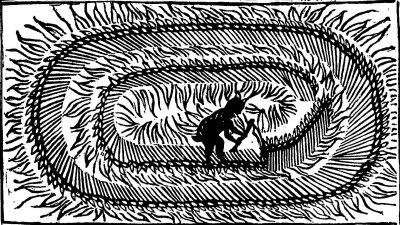Dark Economies
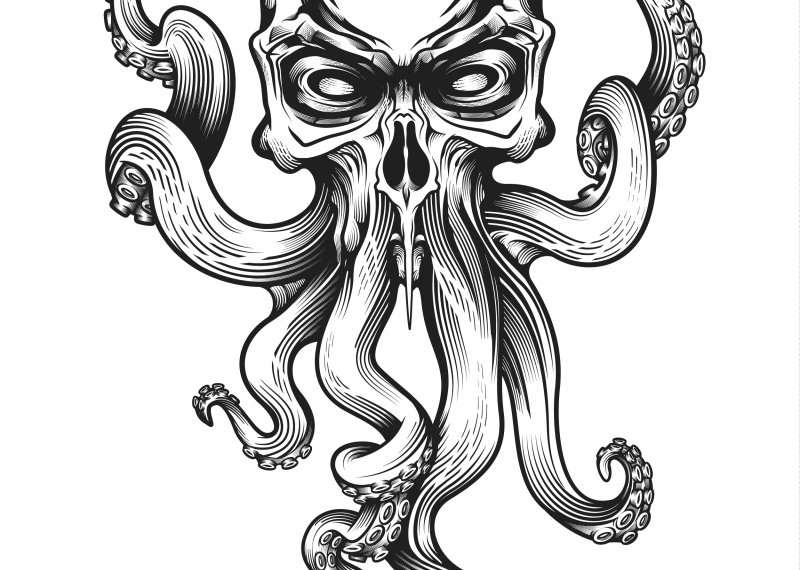
Real world challenges that impact on our collective experiences such as climate change, the dark web, Capitalism and Patriarchy force us to rethink the relationships we have with ourselves, others, and our global environments. How do we live with and envisage these dark times?
Dark Economies explores the story-worlds we create to express our fears and anxieties through representations and fictions about death, crime, the Gothic, horror, sci-fi, and the dystopian. What monsters are created through inequality, poverty and prejudice and what do they tell us about the times we live in?
Overview
The Dark Economies Scholarly Association will explore the story-worlds we create to express our fears and anxieties through representations and fictions about topics such as death, crime, the Gothic, horror, AI and technology, landscapes (rural, urban, mythical, supernatural), folklore, and the occult. What monsters are created through inequality, poverty, and prejudice and what do they tell us about the times we live in? How do we identify, represent, and work through our fears? How can we use our scholarship, creativity, networks, partnerships, and events, to engage people and make a real impact, and positive difference in the world?
DESA is designed to have a wide cross-disciplinary and transdisciplinary remit: from a study of death cultures; mental health problems; economic and environmental studies; dark tourism; art-based, and narrative articulations of the dark, the Association will address and question dark times (present, past, future), by exploring how creativity, practice, scholarship, and technology can impact in a positive way on individuals and into national and global realms.
Research undertaken by our projects helps us understand and negotiate the world better. It enables us to deconstruct, recreate, and redeploy narratives and experiences of darkness in order to enhance our different lived and imagined understanding of the world.
Aims:
- To have an international reach
- To promote equality, diversity, and inclusion
- To promote respectful but challenging discussions
- To create a space for interjecting radical and cutting-edge theory and practice into scholarly and social debates
- To provide opportunities for networking and collaboration to all members
- To help member in their professional careers
In particular we ask:
- How can we apply aspects of the dark economy as a creative bridge to kickstart emergent technologies, creative practices and inter-personal narratives?
- How can dark narratives bridge diverse media and art platforms and bring inter- and transdisciplinary creativity, scholarship and practice into play?
- How can we use creative practices and dark mythologies as tools for negotiating death, inequality, prejudice, and the crises that beset us in the twenty-first century?
- What stories can be explored, mobilised and created in relation to dark economies?
- How can the dark economy inform the development and success of new technologies such as AR, VR and various forms of digital humanities?
- How can darkness be redeployed as creativity and innovation?
Research undertaken by our projects helps us understand and negotiate the world better. It enables us to deconstruct, recreate, and redeploy narratives and experiences of darkness in order to enhance our lived and imagined understanding of the world.
The Association links to the following UN Sustainable development Goals:
We maintain that it is healthy to acknowledge and sometimes celebrate the dark sides of life. We all experience grief, loss, fear, and overwhelm at times. Looking at historical and contemporary representations of these emotions, of practice that explores this side of life, and the deep self-explorations and acceptance that can come from the ‘darker’ side of life can, paradoxically, be life affirming and lead to acceptance and empathy.
The Association will be as open and diverse as possible and the findings and scholarship arising from projects will be encouraged to be open access. The Association will promote education about all the subjects that members explore. The established journal linked to the Association; Revenant is completely open access. Post-graduate students in particular will be invited to be active in the Association and we will offer opportunities and mentorship.
We are entirely committed to this goal and hope this is evident in all the work we do and that we will do. We promote women’s rights and work, we have scholars working in masculinity, queer, and trans studies. We will be as inclusive and diverse as possible. And this is one of the main goals of the Association.
The study of the subjects covered by the umbrella of ‘dark economies’ allows for and indeed is intended to look at subjects such as violence perpetrated against women, prejudice, economic inequalities – poverty, hunger, and geographic inequalities. The climate crisis falls under the dark economies remit for example and this (at the moment) affects the Global South more severely than the North. These debates and cutting-edge scholarship in these areas will form a part of the work of the Association; its members, conferences, publications, and events.
The Association will cover subjects such as folk horror, rurality, the urban wyrd, mythologies and folklore. Where both rural and urban areas can seem threatening and fearful, scholarship looking at the origins of these feelings and the very old stories surrounding different landscapes and communities can aid understanding and acceptance. One of our executive board, Dr Karl Bell founded the ‘Supernatural Cities’ project and is on our executive board. Further encouraging members from around the globe, the idea of sustainable cities and communities can be widened out and wide and diverse conversations can ensue.
A lot of work of the board members and mooted Association members is and will be in this area. Following our ‘Haunted Landscapes’ conference the idea of climate action was front and centre of many of the papers and we anticipate our members will demand discussion and events in this area. Our work with our partner, the ‘Layered Places: Real, Imagined, Reimagined research group’ will be important here.
The work now and in the future for the Dark Economies Scholarly Association is very rooted in the landscape. We are partnering with the ‘Port Cities and Maritime Cultures research centre’ project. project and the concept of peopled communities, coastal centres, forests (usually scary!), seas (ditto), and animal and non-human life studies are all embedded in the work that we will be doing. The entire concept of sustainability is vital to the work we want to do ourselves and promote and enable others to do as well.
Partners
‘Port Cities and Maritime Cultures research centre’ (University of Portsmouth). This is a new research centre which follows on from the work of the Supernatural Cities project.
‘Layered Places: Real, Imagined, Reimagined research group’ (Limerick School of Art and Design). This is a new research group headed up by Dr Tracy Fahey.
DESA fully aligns with Falmouth University’s Values:
Creative: Knowing that creativity is the vanguard of progress, we’re constantly seeking new ways of thinking, doing and creating.
Achieve: We value the pursuit of excellence and enrichment as a collective aspiration to be the very best we can be.
Respectful: We have an open mind, we respect differing views, we listen and enable, and we work towards an equitable and diverse world.
Sharing: We collaborate and share knowledge to co-create a positive impact.
Research lead
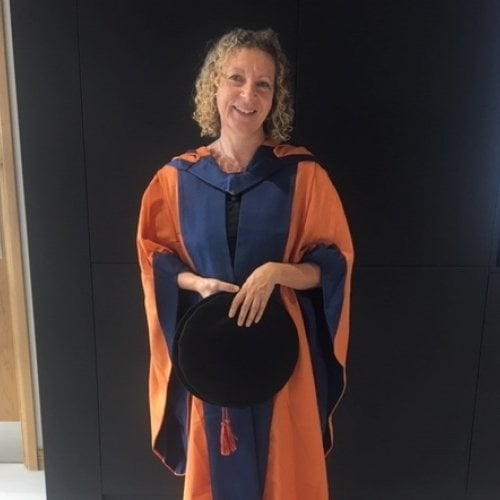
Professor Ruth Heholt
Professor Ruth Heholt is an internationally renowned scholar in the fields of Gothic, supernatural, Victorian, folk horror, and crime fiction studies. She is author of Catherine Crowe: Gender, Genre, and Radical Politics (Routledge, 2020) and co-author of Gothic Kernow: Cornwall as Strange Fiction (Anthem Press, 2022). She is co-editor of several collections including Gothic Britain: Dark Places in the Provinces and Margins of the British Isles (2018), The Victorian Male Body (2018), and Haunted Landscapes (2017).
View profileRelated projects and conferences
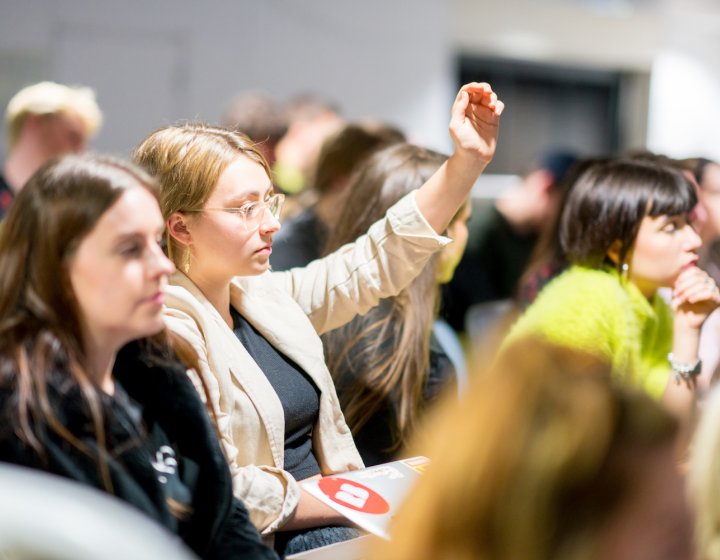
Haunted Modernities, Present Pasts and Spectral Futures
Hosted by Falmouth University, and co-sponsored by Northeastern University, the Haunted Modernities ...
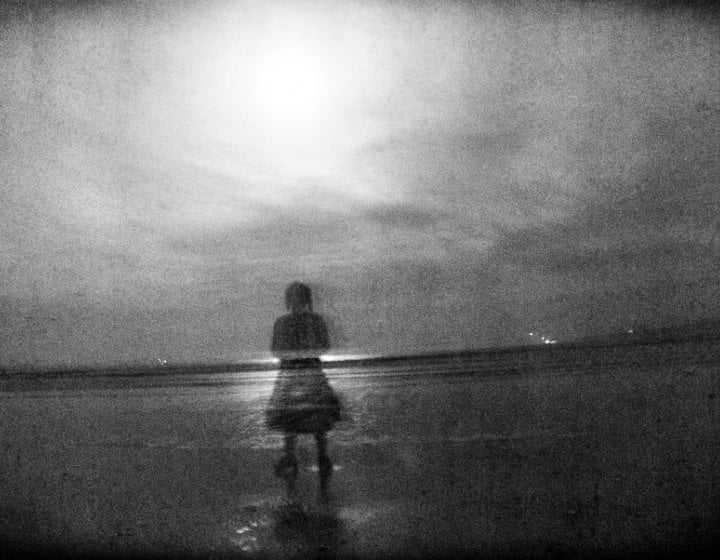
Dark Sound: Feminine Voices in Sonic Shadow
This book by Senior Lecturer, D Ferrett, explores the cultural and historical association between wo...
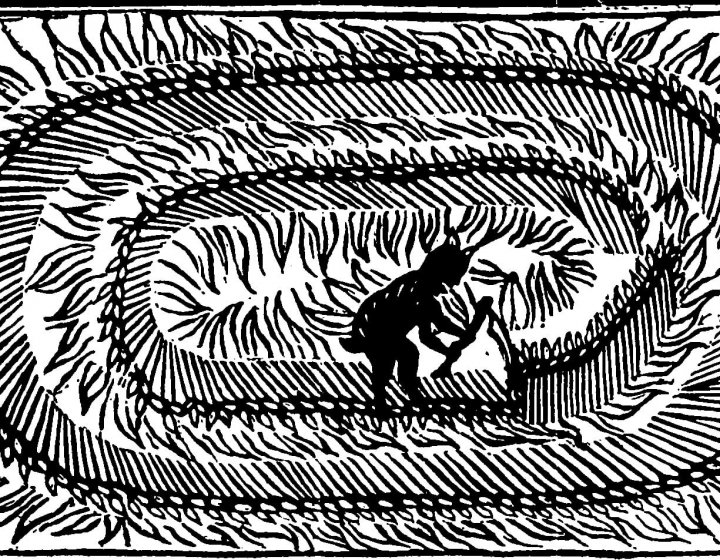
Folk Horror in the 21st Century
Culminating in a two-day conference in 2019, Folk Horror in the 21st Century explored all aspects of...
Research Repository
Falmouth University’s Research Repository (FURR) hosts, preserves and provides open access to our publicly available collection of University produced research materials, for the benefit of staff students, the wider field and general public.
